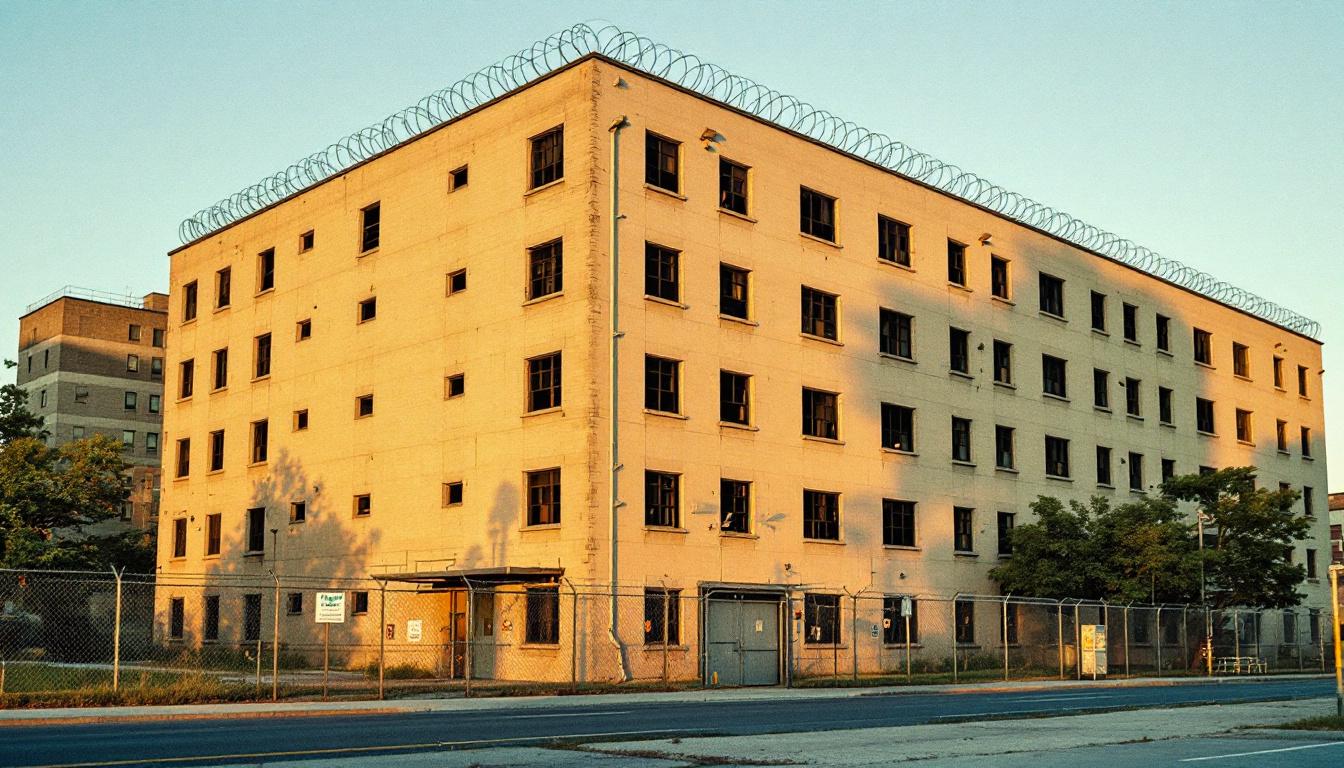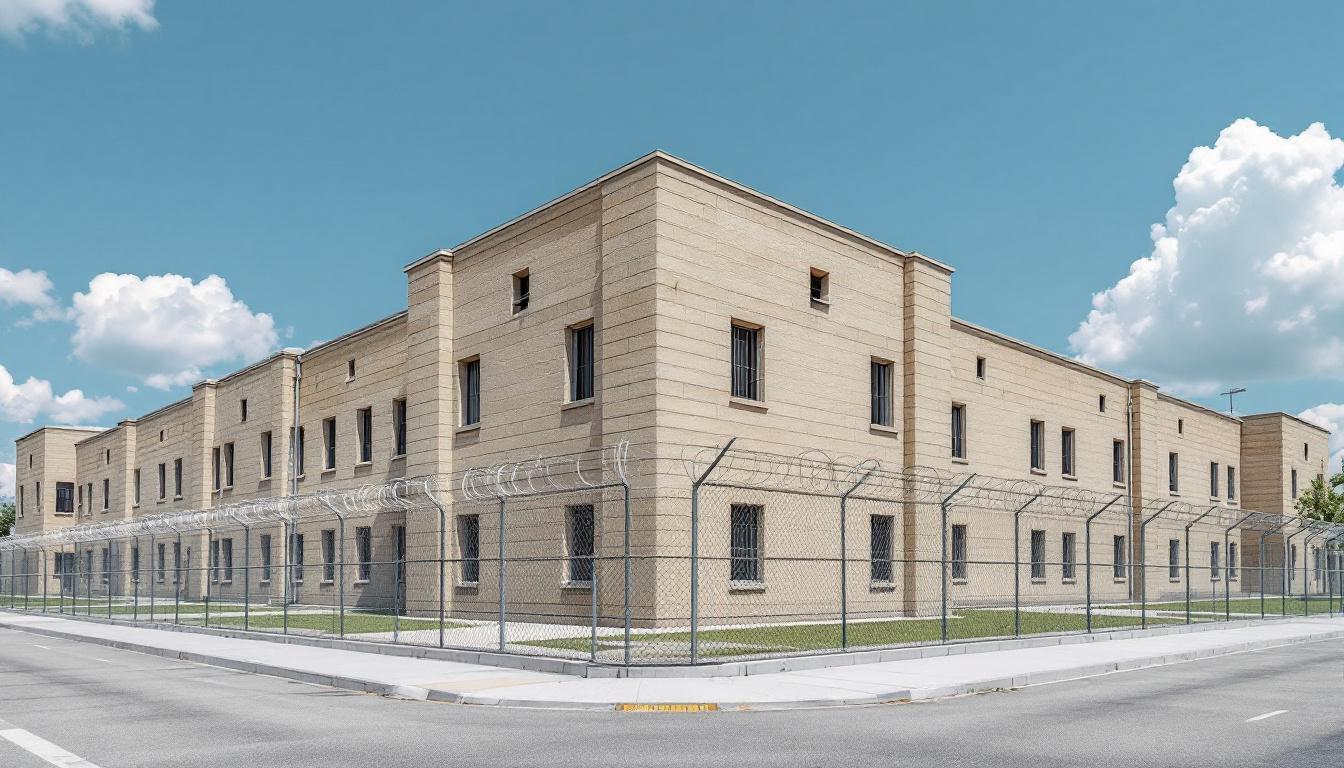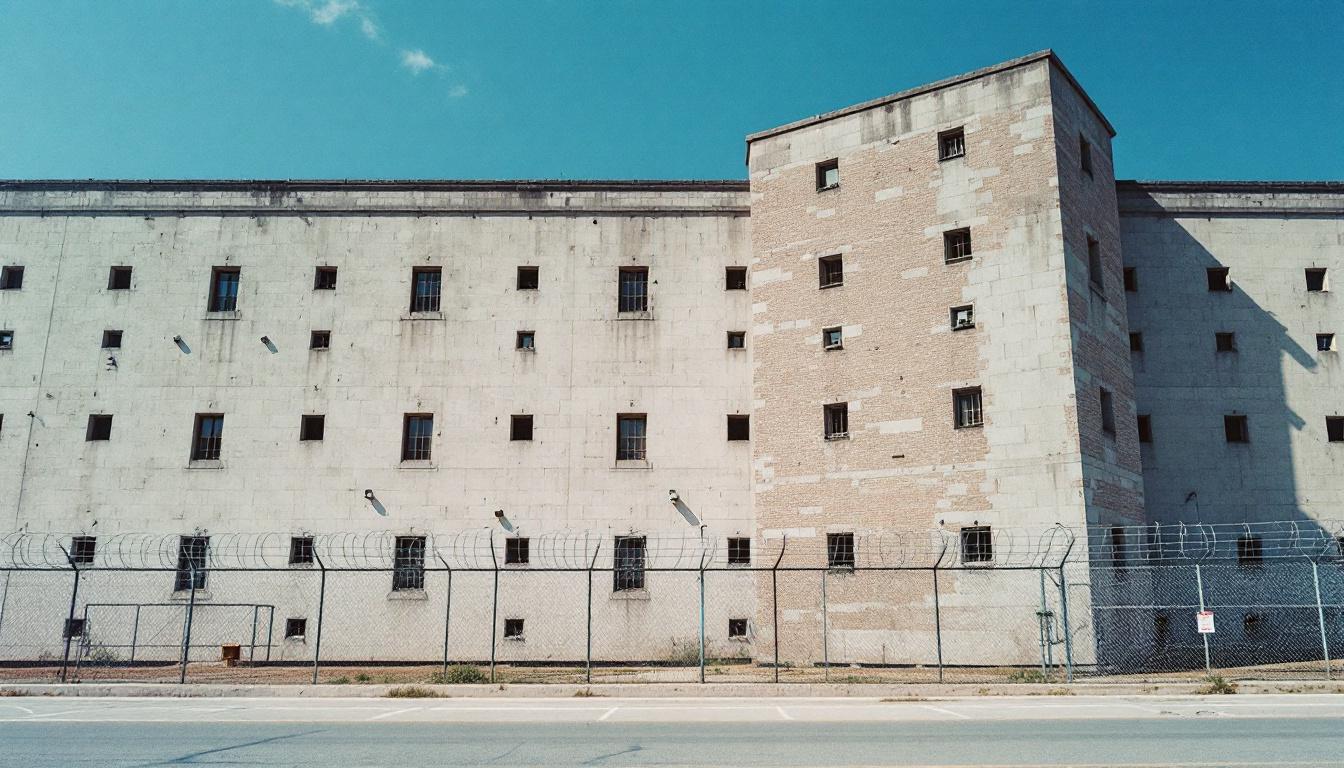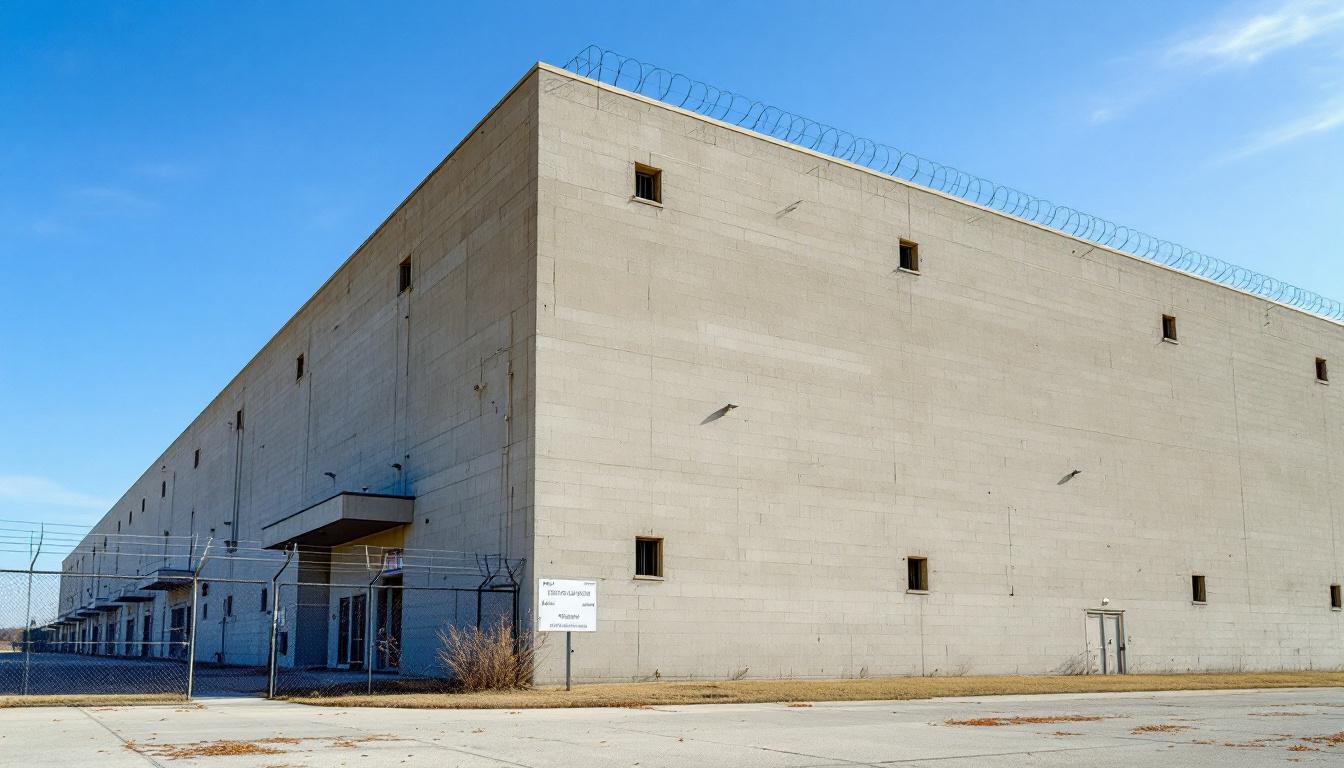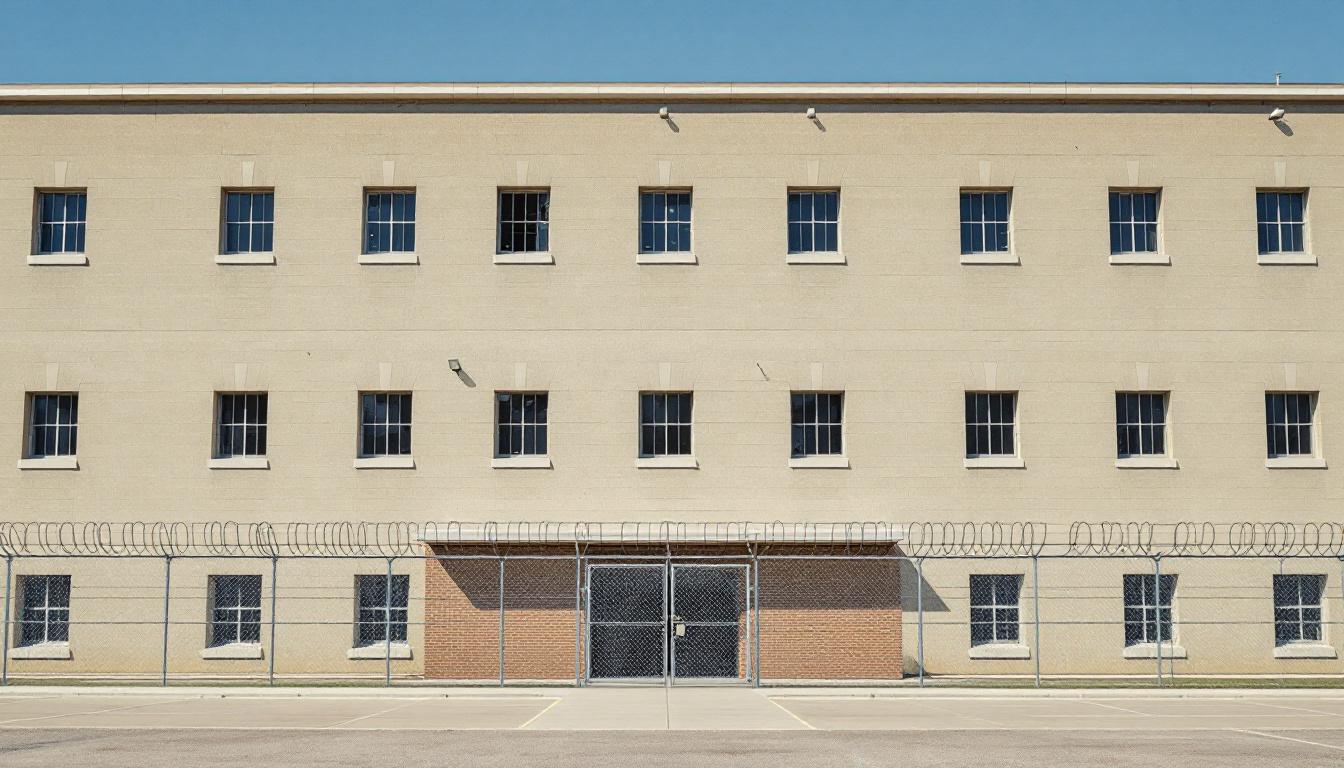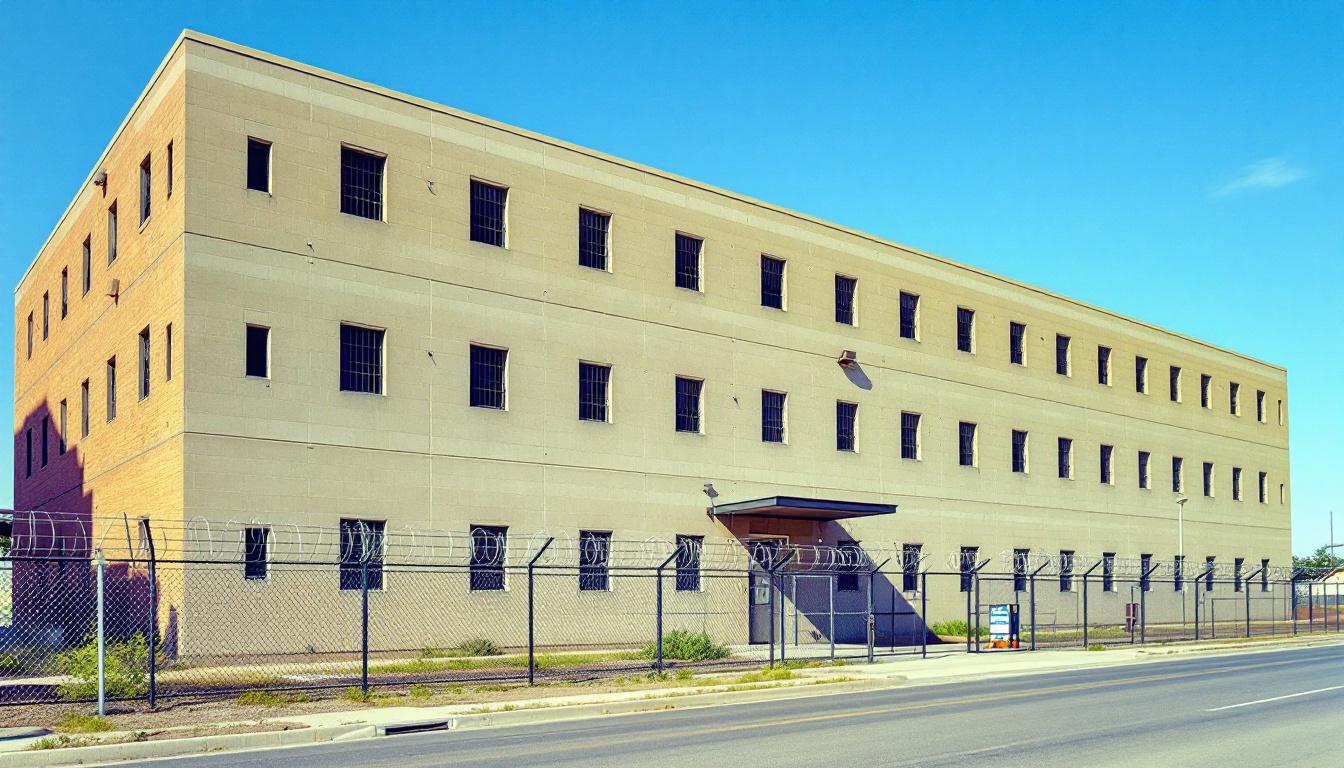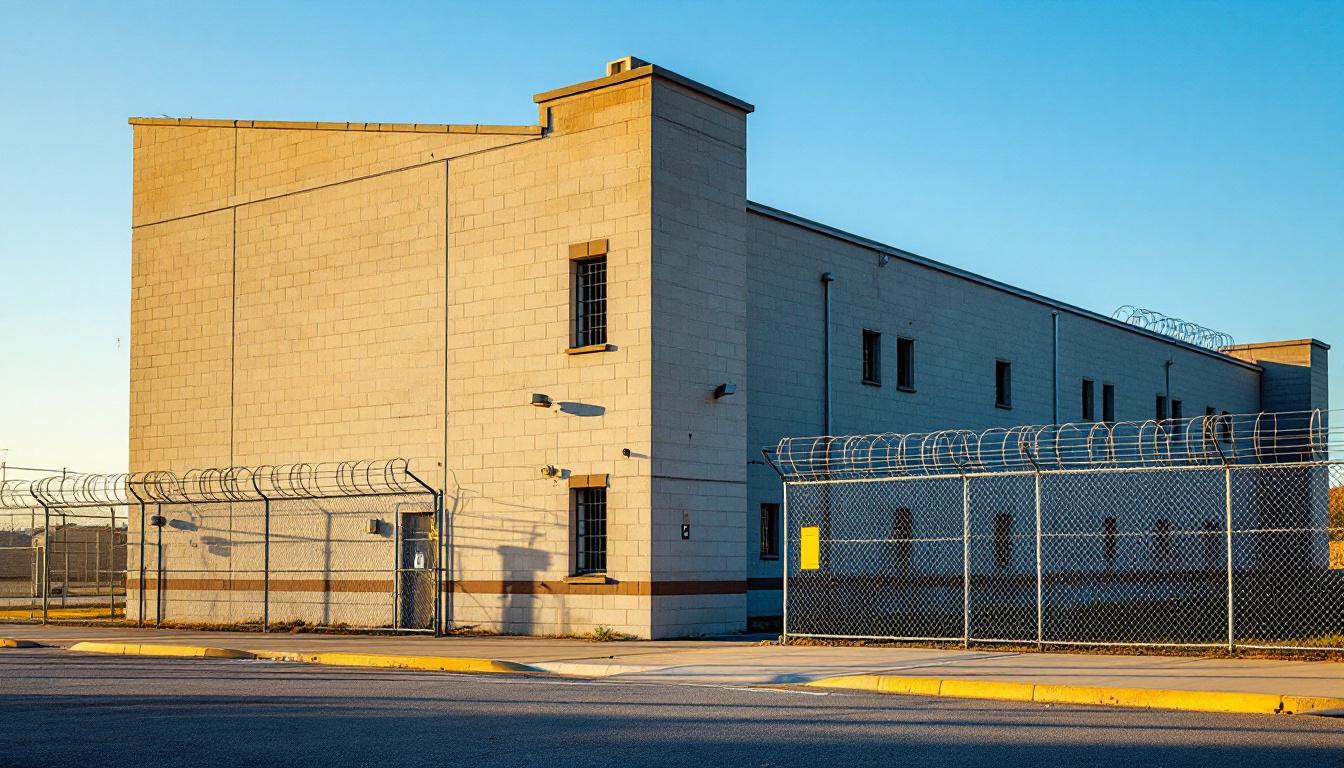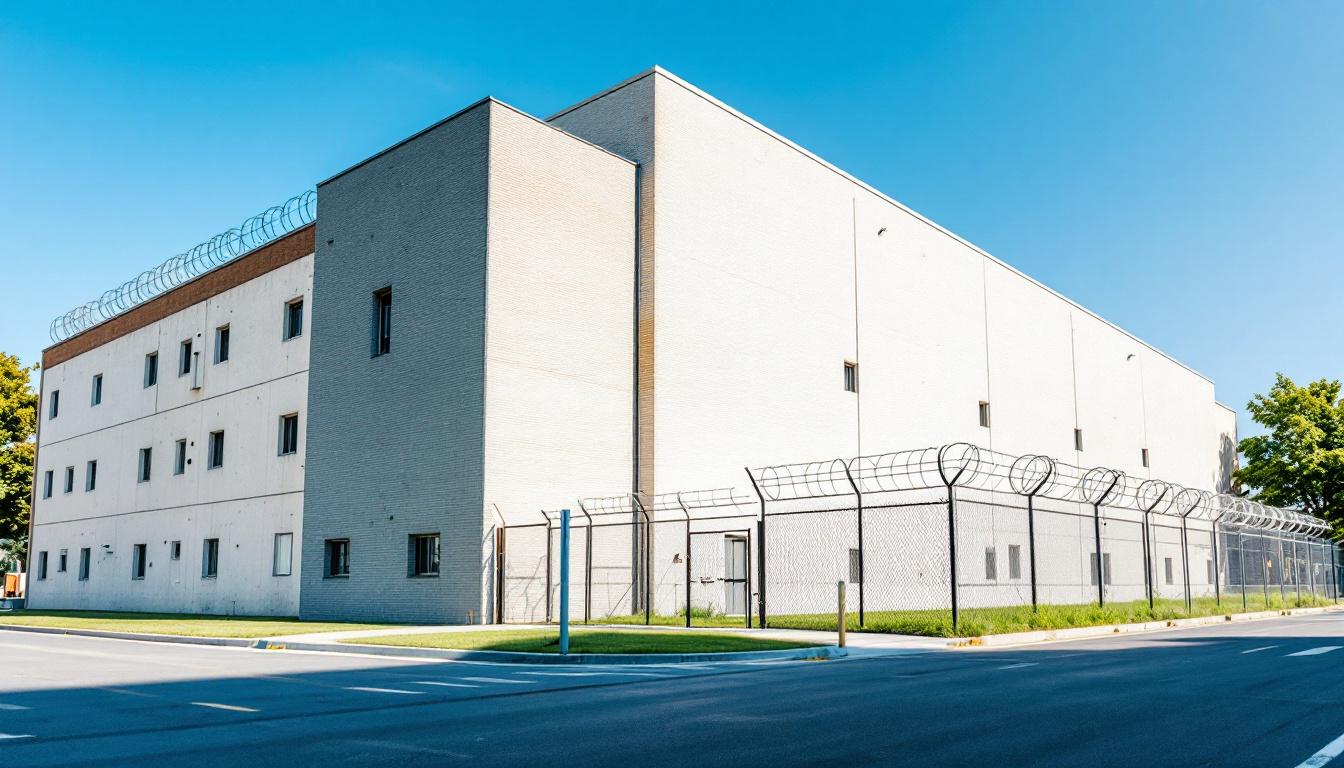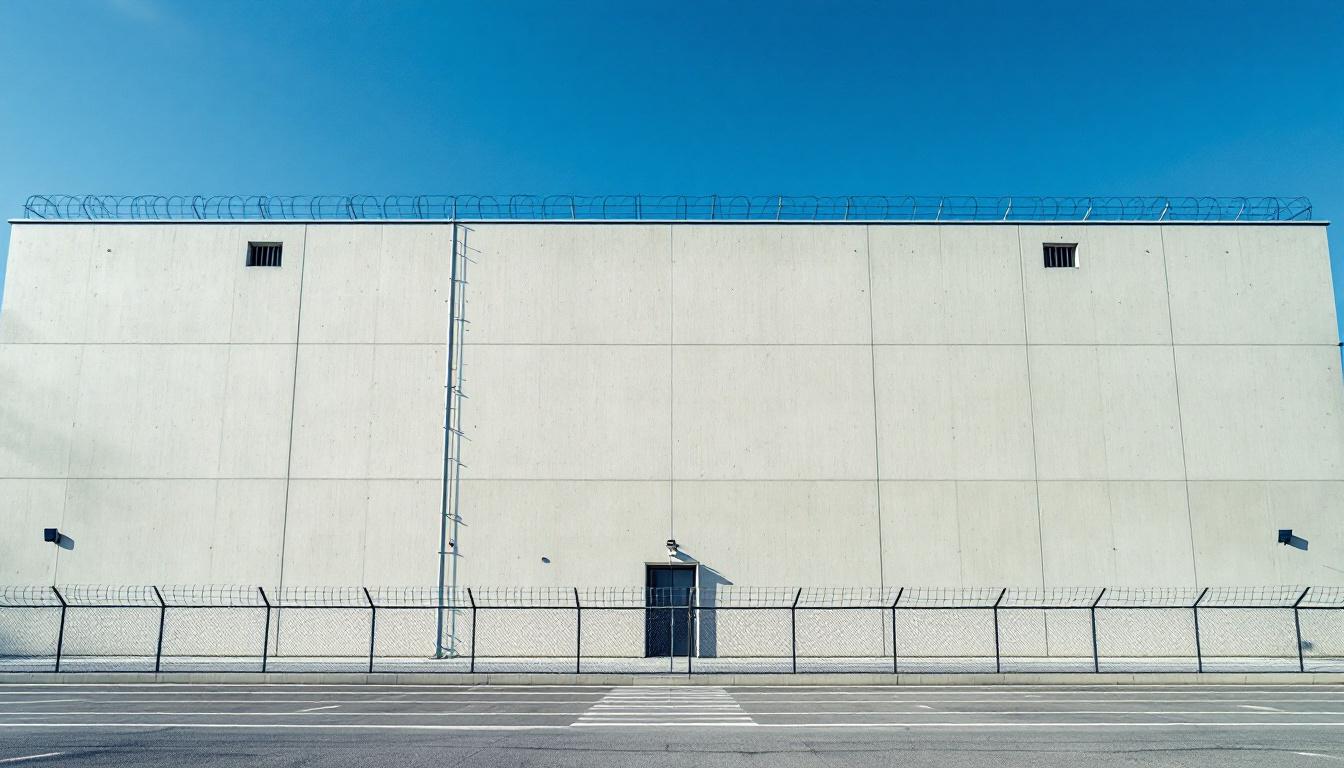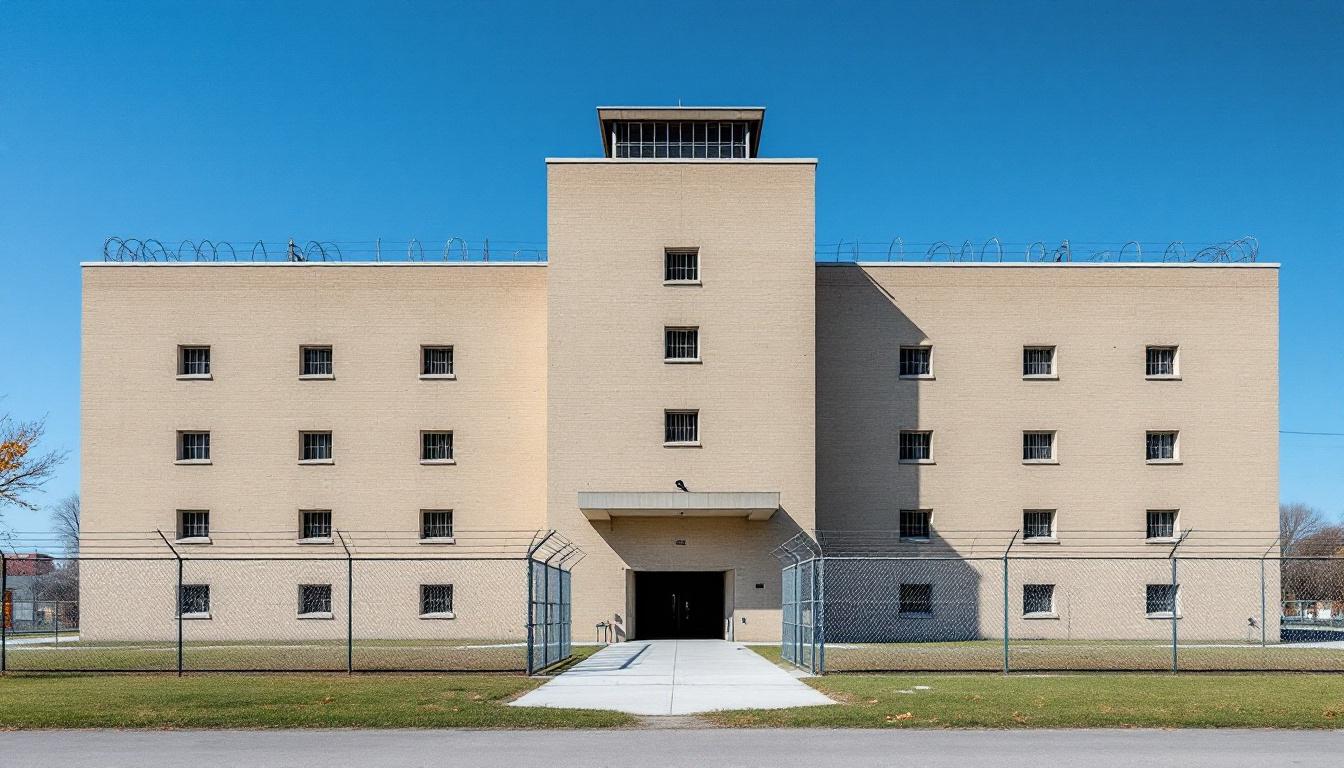
Quick Navigation
How to contact an inmate at Johnston County Jail
This comprehensive guide will walk you through how to connect with an inmate at Johnston County Jail. Follow the steps below to find an inmate and send letters and photos:
- Search for the inmate using our search tool below
- Create your account or log in to Penmate
- Write your message (up to 6,000 characters)
- Send instantly - inmates receive printed copies daily
Find an Inmate
Search for an inmate to start communicating today
Tip: You can search by first name, last name, or inmate ID number
To contact a person at Johnston County Jail start by searching for the person on the facility website. Perform a search by following these steps:
- Step 1: Enter their first name and last name into the search form and click "Search"
- Step 2: Locate their inmate record
- Step 3: Write down their Inmate ID and any housing information provided
Important! Be sure to enter the person's full name. Nicknames should not be used.
How to Send Messages to Inmates

You can use your phone or computer to send emails, letters, and photos to an inmate. Messages are sent electronically to inmate tablets or kiosks at the facility. If you would like to send a message, start by searching for an inmate at Johnston County Jail.
Sending Photos and Postcards

A great way to send love and support to a loved one at Johnston County Jail is to send photos and postcards. It only takes a few minutes to send photos from your phone and it makes a huge difference. You can also mail postcards with words of support and inspiration, or design your own postcard for special moments like birthdays and holidays.
Important! Be sure not to send any explicit photos or they may not be approved by the facility. You can also use a photo printing app like Penmate to make sure your photos are printed at the correct size (4x6 or 3x5) and are mailed according to the rules and regulations of Johnston County Jail.
Frequently asked questions about Johnston County Jail
-
How long does it take to deliver a message?
If you're sending an email message your letter is usually delivered within 24-48 hours. For messages sent via mail you should expect delivery within 3-7 days. All messages will need be approved by Johnston County Jail.
-
How much does it cost to send a message to Johnston County Jail?
You can send a message free using your phone or mail a message via USPS for the price of a $0.60 stamp and envelope. You can also purchase credits or e-stamps from services starting at $1.99.
-
What services can I use to contact an inmate at Johnston County Jail?
Penmate
You can use Penmate to send letters and photos to an inmate from your phone. It's an easy way to stay in touch during your loved one's incarceration. Use the inmate locator to find an inmate's location and contact information, then you can send messages within a few minutes.
Securus messaging
Securus may be another option for communicating with an inmate at Johnston County Jail. You can create a friends and family account and purchase credits to send messages. All messages will be reviewed and must be approved by the facility.
JPay
Some county jails and state prisons may support sending messages with JPay. You must register an account with the system, find your loved one, and purchase stamps to send messages. For some locations you can also attach photos.
Smart Jail Mail
You may also check if Smart Jail Mail is available at Johnston County Jail. Smart Jail Mail is operated by Smart Communications and has contracted with some state and county jails. After purchasing credits, your messages and photos are sent to the facility, printed out, and then handed out to your loved one.
-
What is the mailing address of Johnston County Jail?
Mailing address:
Johnston County Jail
110 N Capitol Ave
Tishomingo, OK 73460
Phone: (580) 371-2691 -
What are the visiting hours at Johnston County Jail?
Visiting hours at Johnston County Jail vary by housing unit and security level. Generally, visits are scheduled on weekends and holidays, with some facilities offering weekday visits. Contact the facility directly at (580) 371-2691 or check their website for the current visiting schedule. Visits typically last 30-60 minutes and must be scheduled in advance.
-
What items are prohibited when sending mail to Johnston County Jail?
Prohibited items typically include: cash, personal checks, stamps, stickers, glitter, glue, tape, staples, paperclips, polaroid photos, musical or blank greeting cards, hardcover books, magazines with staples, and any items containing metal or electronics. Only send letters on plain white paper with blue or black ink. Photos must be printed on regular photo paper (no Polaroids). Always check with Johnston County Jail for their specific mail policies.
-
How do I send money to an inmate at Johnston County Jail?
You can send money to an inmate at Johnston County Jail through several methods: 1) Online using JPay, Access Corrections, or the facility's approved vendor, 2) Money orders mailed directly to the facility with the inmate's name and ID number, 3) Kiosks located in the facility lobby, or 4) Over the phone using a credit or debit card. Fees vary by method, typically ranging from $2.95 to $11.95 per transaction.
-
Can I schedule a video visit with an inmate at Johnston County Jail?
Many facilities now offer video visitation as an alternative to in-person visits. At Johnston County Jail, video visits may be available through services like Penmate, Securus Video Connect, GTL, or ICSolutions. Video visits typically cost $10-20 for 20-30 minutes and must be scheduled in advance. You'll need a computer or smartphone with a camera and reliable internet connection. Contact the facility for their specific video visitation policies and approved vendors.
-
What identification do I need to visit an inmate at Johnston County Jail?
All visitors must present valid government-issued photo identification such as a driver's license, state ID, passport, or military ID. Minors must be accompanied by a parent or legal guardian who can provide the minor's birth certificate. Some facilities require visitors to be on the inmate's approved visitation list, which may require a background check. Contact Johnston County Jail for specific ID requirements and visitor approval procedures.
-
How can I find out an inmate's release date?
To find an inmate's release date at Johnston County Jail, you can: 1) Use the online inmate search tool if available, 2) Call the facility's records department, 3) Contact the inmate's case manager or counselor, or 4) Have the inmate provide this information during a call or visit. For privacy reasons, some facilities only release this information to immediate family members.
Facility Overview
Contact Information
Johnston County Jail110 N Capitol Ave
Tishomingo, OK 73460
Phone: (580) 371-2691

About Johnston County Jail
Serving the correctional needs of Johnston County while maintaining strong ties to community-based rehabilitation efforts, this OK correctional facility operates as a vital component of the region's justice system. Located in Tishomingo, the county seat nestled in south-central Oklahoma, Johnston County Jail, OK functions within a framework that emphasizes both secure detention and collaborative approaches to addressing the underlying factors that contribute to criminal behavior.
The facility typically maintains partnerships with various community organizations and service providers to offer those incarcerated services that may include educational programming, substance abuse counseling, and vocational training opportunities. This collaborative approach often extends to working with local faith-based organizations, mental health professionals, and reentry specialists who help prepare individuals for successful community reintegration. The county jail generally operates under state oversight while adapting its programs to meet the specific needs of the Johnston County population it serves.
Within Oklahoma's broader correctional landscape, the facility in Tishomingo represents the important role that county-level institutions play in providing immediate detention services while fostering connections between inmates and the community resources they will eventually rejoin. The jail's approach typically emphasizes structured daily routines, safety protocols, and rehabilitation-focused programming designed to reduce recidivism and support positive behavioral changes during incarceration.
Programs & Services
Personal transformation often begins within the structured environment where those incarcerated discover pathways toward meaningful change and skill development. Johnston County Jail typically emphasizes creating opportunities that foster both immediate personal growth and long-term success upon reentry into the community. The facility's comprehensive approach recognizes that meaningful rehabilitation occurs through a combination of educational advancement, practical skill acquisition, and therapeutic intervention, all delivered within a framework that prioritizes security and structured daily routines.
Educational offerings may furnish those incarcerated with opportunities to complete their high school equivalency or pursue adult basic education, addressing fundamental learning gaps that often contribute to recidivism. Vocational training components typically focus on practical skills that translate directly to employment opportunities, providing hands-on experience in trades and technical fields. These structured learning environments often include computer literacy courses and job readiness preparation, equipping participants with both technical competencies and workplace soft skills essential for successful community reintegration.
In addition to these foundational educational components, the facility often includes therapeutic interventions such as cognitive behavioral therapy, which addresses underlying thought patterns and decision-making processes. Faith-based offerings may provide spiritual guidance and community support for those seeking this form of personal development, while physical fitness opportunities contribute to overall wellness and stress management. Support services typically extend to practical work assignments including janitorial services and facility maintenance, allowing those incarcerated to develop work habits, responsibility, and a sense of contribution to their immediate environment while maintaining the structured, secure atmosphere essential to institutional operations.
Daily Life & Visitation
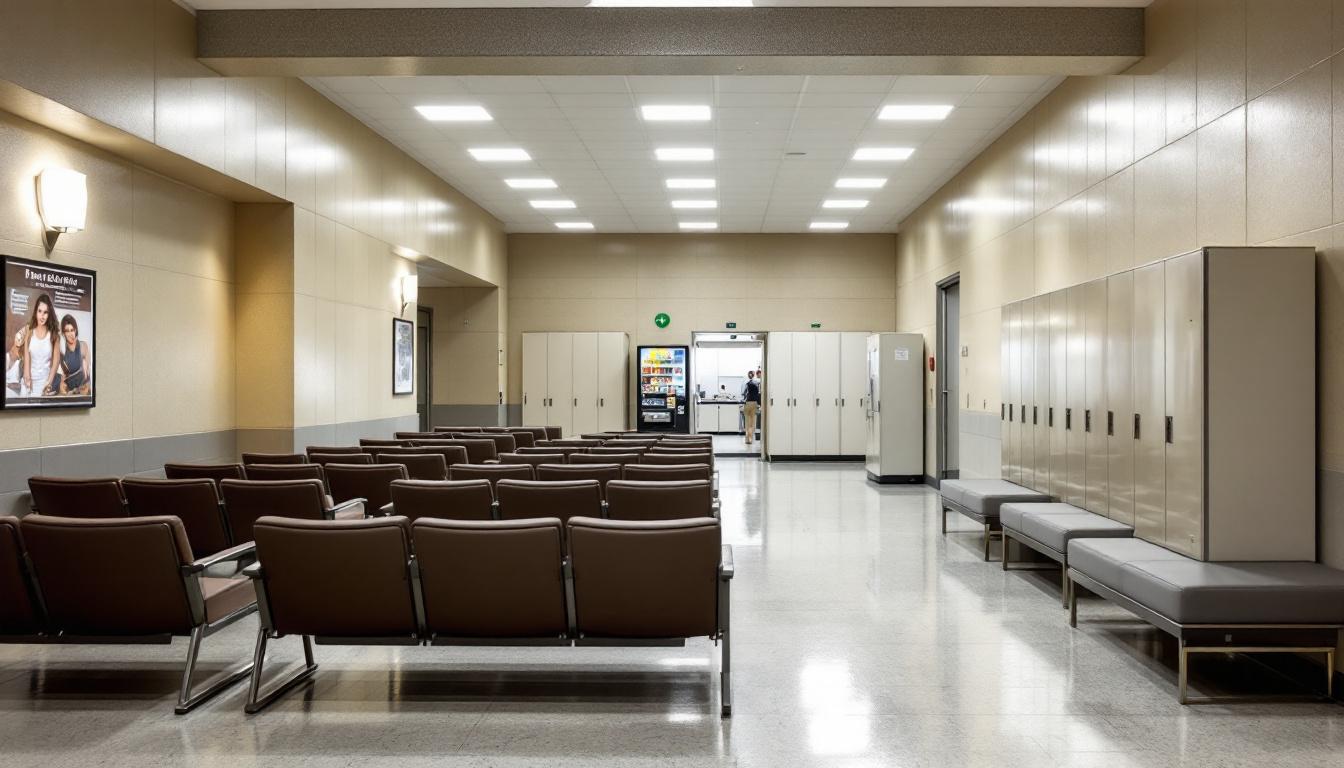
Family bonds and social connections form the cornerstone of resilience for those incarcerated at Johnston County Jail, as maintaining relationships with loved ones becomes a vital source of strength during their time at the facility. The structured environment now provides multiple opportunities for individuals to stay connected with their support networks, while regularly scheduled activities help foster a sense of community within the housing units. Those incarcerated typically begin their days with early morning counts and meal service, followed by various programming opportunities that may include educational classes, substance abuse counseling, or vocational training sessions that furnish both personal development and social interaction among participants.
Living accommodations generally consist of dormitory-style housing units or smaller cells, depending on classification levels and available space within the facility. Those incarcerated usually share common areas where they can engage in conversation, watch television, or participate in recreational activities during designated periods. Meals are typically served in a central dining area, providing another opportunity for social interaction and community building among residents, though some housing units may receive meals delivered directly to their living spaces based on security considerations and facility operations.
In addition to this structured daily routine, the facility typically offers various programs designed to help individuals maintain connections with their families and prepare for successful reintegration into the community. Visitation opportunities may include both in-person visits and video calling systems, allowing those incarcerated to regularly communicate with loved ones and maintain important relationships. Work assignments within the facility often include kitchen duties, maintenance tasks, and cleaning responsibilities, which not only provide structure but also opportunities for individuals to develop job skills and work alongside others in a collaborative environment. Despite this institutional setting, many find that participating in group activities, religious services, and educational programs helps create meaningful connections with fellow residents while working toward personal goals and maintaining hope for their future.
Ready to Connect?
Start communicating with your loved one today
Search for an Inmate
